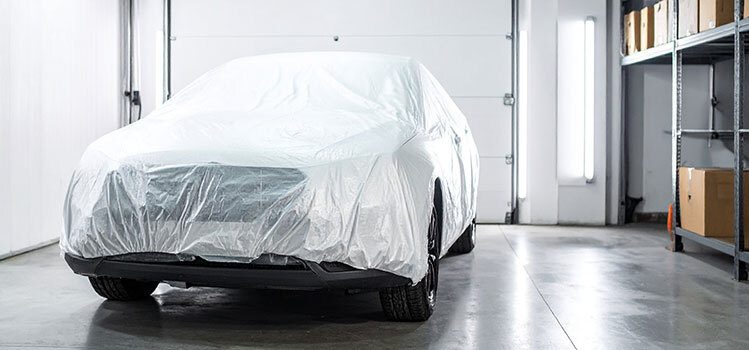
Choosing the right storage unit size for your car doesn't have to be complicated. Whether you have a compact car, a large SUV, or a classic vehicle you want to protect, understanding your options will help you make the best choice. This guide will answer the question, "What size storage unit do I need for a car?" and provide tips to ensure your vehicle stays safe and secure.
Vehicle storage is a popular solution for car enthusiasts, people who drive seasonally, and anyone needing a secure parking alternative. From protecting a vintage car during the winter to storing a daily driver during long-term travel, the right storage unit offers peace of mind and protects your investment.
Before you decide on a specific storage unit size for a car, there are several important factors to consider. Thinking through these points will help you narrow down your options effectively.
Finding the right fit is crucial. Here’s a breakdown of recommended storage unit sizes based on common vehicle types.
Recommended Size: 10x15 feet
A 10x15 storage unit is a great fit for most compact cars. This size works well for vehicles such as:
This unit size gives you enough space for your car plus a little extra room to walk around and store a few small items.
Recommended Size: 10x20 feet
The most common storage unit size for a car is the 10x20 unit. It’s perfect for most mid-size vehicles, including:
A 10x20 unit is roughly the size of a one-car garage, offering plenty of space for your vehicle while leaving room for easy access.
Recommended Size: 10x25 or 10x30 feet
If you have a larger vehicle, you will need a more substantial storage space. These larger units are ideal for:
These units accommodate oversized vehicles and provide significant extra space for tools, equipment, or other storage needs.
Proper preparation keeps your car in excellent condition while it’s stored. Follow these steps before you park it.
When determining what size storage unit you need for a car, you also have to choose the type of storage.
Indoor units provide the highest level of protection. They shield your car from extreme weather, UV rays, theft, and vandalism. Climate-controlled options maintain a consistent temperature and humidity, which is ideal for classic, luxury, or other high-value vehicles.
Covered storage is a great balance of protection and cost. These carport-style spaces protect your vehicle from sun, rain, and snow while allowing for natural air circulation. It’s a good choice for daily drivers that need protection from the elements.
Outdoor storage is the most economical option. It consists of a designated parking space within a fenced, secure facility. While exposed to the weather, these lots typically have security features like gated access and surveillance cameras.
Answering "What size storage unit do I need for a car?" involves balancing your vehicle's size, your budget, and your protection needs. Start by measuring your car carefully. Consider how long you plan to store it; short-term storage may be fine for an outdoor space, while long-term storage often warrants indoor protection.
Remember that a slightly larger unit can provide better value by offering easier access and extra room for supplies. Research local storage facilities, compare their prices and security, and read customer reviews. By following these guidelines, you can make an informed decision that protects your vehicle and fits your budget.